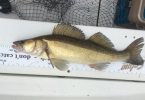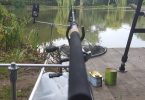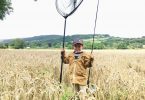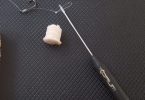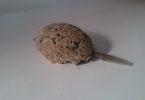Having recently joined a new fishing syndicate and having given their waters the once over it looks like I have a great years fishing ahead of me. The waters owned by the syndicate are really small, one pond and one pool, but, if I am honest, that’s what attracted me to them.
I have been, for some reason, giving thought to whether or not I have a speciality in angling and it would seem that I do… Well, I don’t know if it would qualify as a speciality or simply a preference but I find myself unavoidably drawn to fishing in small waters.
I think that us anglers can fairly be accused of, on occasions, not being able to see the wood for the trees when it comes to choosing angling venues. Many of us start out, as I did, fishing in local ponds. They are often council owned and, if you are anything like me, you started out with improvised tackle.

First fish? Usually a perch but, weather you started out like me or were a little more lucky and went fishing for the first time with real tackle and under the instruction of an experienced angler, can you remember the excitement that you felt when you landed that first fish?
Perhaps it is that sense of excitement that has seen me go from fishing tiny waters as a young boy to fishing larger venues as I grew, and now, following a disillusioned break, back to those small ponds. For the sake of clarity here, when I refer to a pond I mean a water where it would be possible to cast, bank to bank, without getting your lead wet from most, if not all, of the banks and a pool is larger than a pond, there are a few longer stretches.
The greatest thing about Ponds is that they are everywhere. Often too small to be viable as a commercial fishery and, more usually, owned by local councils, farmers or golf clubs. In any case, it is often possible to get permission to fish there cheaply if not for free!
The first step is obviously finding them, I didn’t know the syndicate I am now a member of even existed until I went out and about looking for fishing spots near my home. Maps, word of mouth, asking at your tackle shop, and getting out on your bike is the only advice I can give here I am afraid.
Step two is obtaining permission, look out for no fishing signs and abide by the rule. It may still be worth contacting the owner of the water just in case they can be convinced to let you fish but, to be honest, I wouldn’t hold your breath.
Once you have found your spot and gained the necessary permissions then you start to think about what it is you are going to be catching. Perch and Roach love small waters, it is worth giving a lot of thought to areas that may hold larger fish.
Remember that it is unlikely that you will be breaking any records in your pond but, with so many fish about in such a small place, fishing can be really easy if you don’t mind catching tiny fish. Should you want to take the larger fish however think natural features and fish as close as you dare.
Remember too, there are a lot of other potential species aside from the obligatory perch and roach. There may be Carp or Goldfish, Rudd, occasionally Dace and, with life being so densely packed into many small ponds, there will always be the odd hybrid.
Your pond may also hold pike and, if there is plenty of food around, there will almost definitely be a big eel in there somewhere.

With so many fish often packed into a small space, the pond is a great place to revisit old techniques and experiment with new ones. The small bream in the image, though a long way off being a monster, was caught using a piece of cotton wool for bait.
I will be writing a lot more about Ponds and the specific techniques and concepts required to fish them successfully over the coming months, including my attempts to catch that eel.
In the mean time, try and remember the excitement you felt when you first started out in our great sport, stop thinking in terms of the biggest fish and get out there to enjoy a whole new world where the simplest fishing techniques are often still the best.

